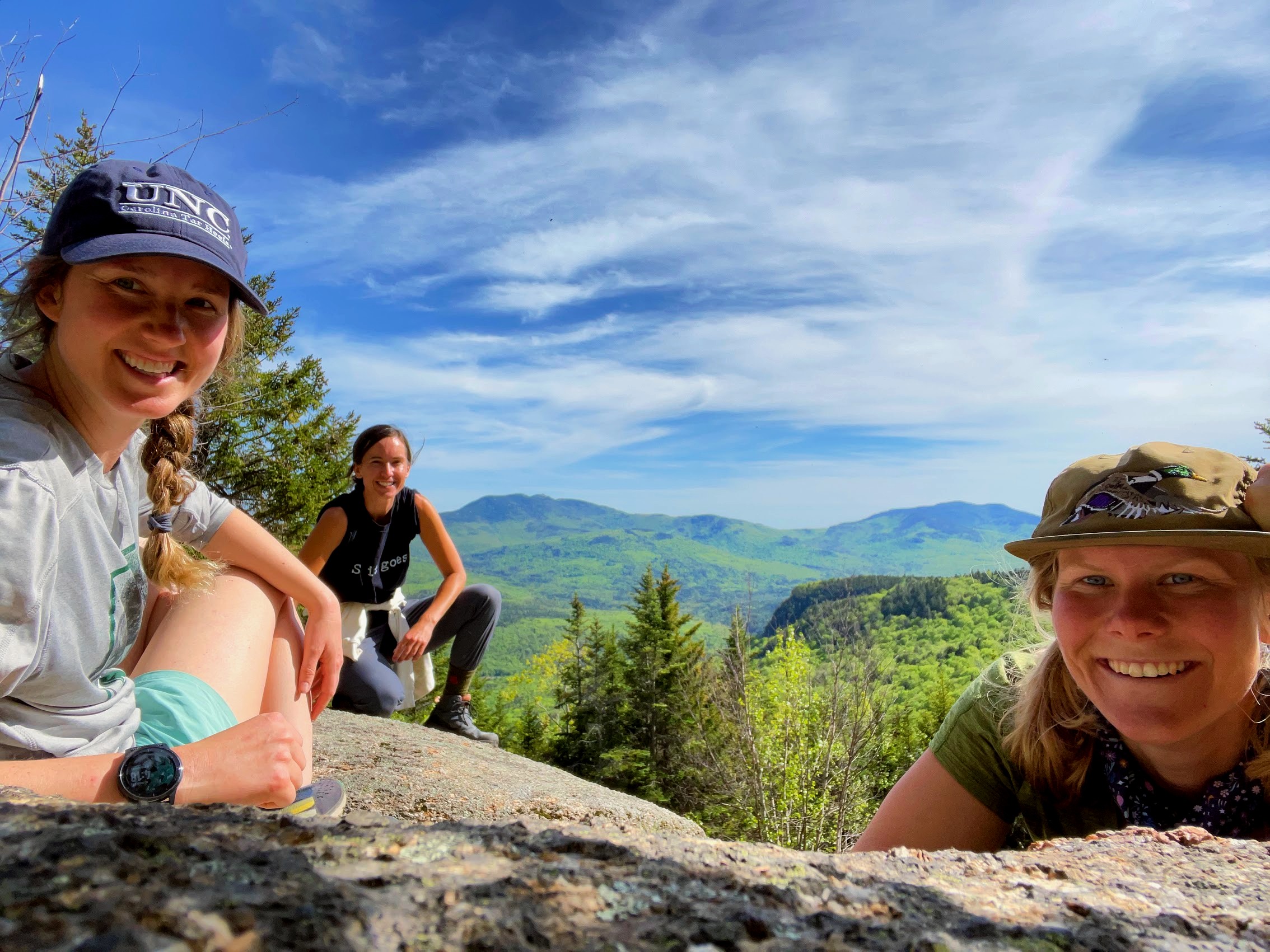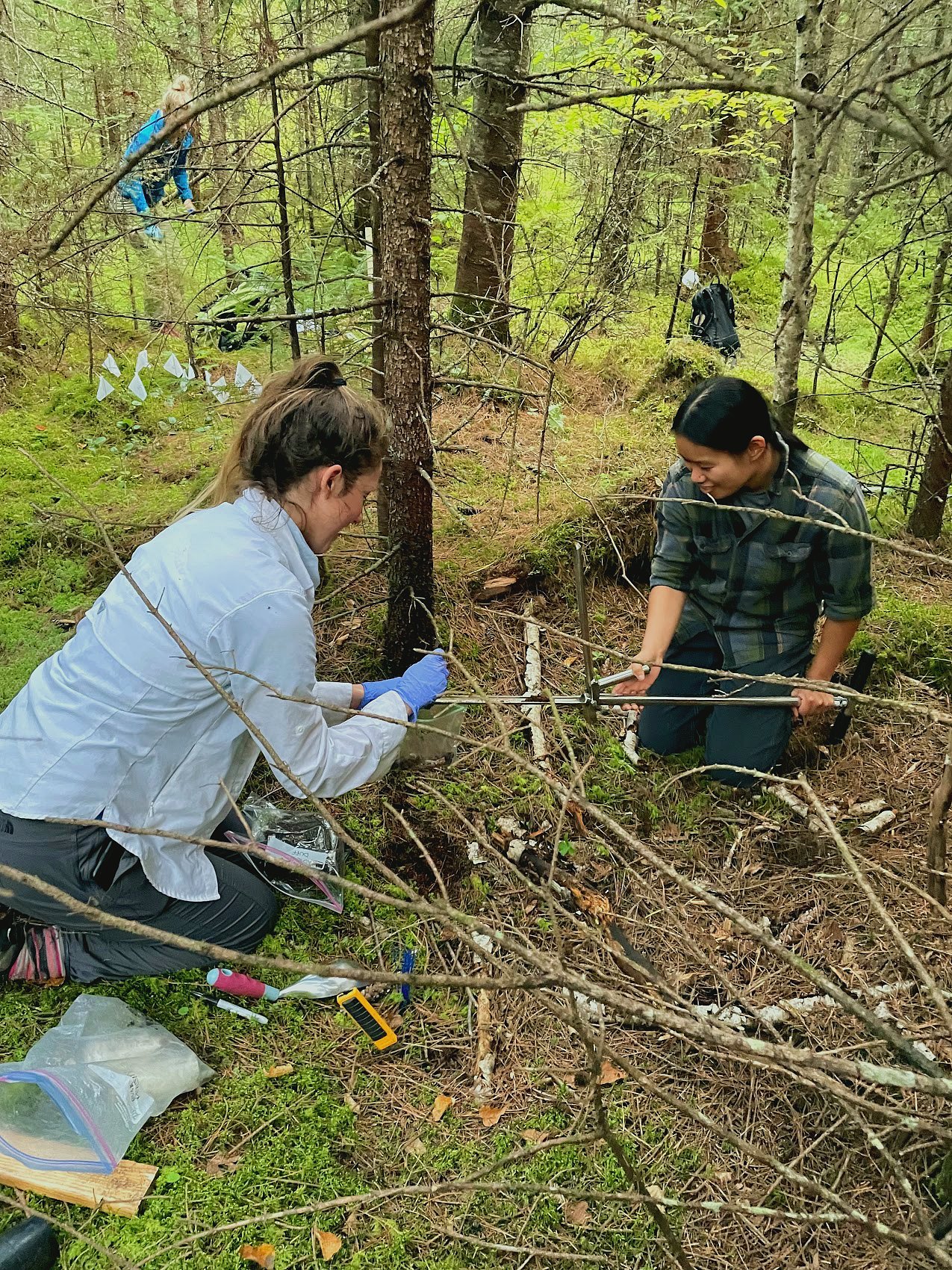
INSPIRES Postdoc Profile: Melissa Pastore
By Stefania Irene Marthakis
Melissa Pastore, global change ecologist and second-year postdoctoral associate in the Rubenstein School of Environment and Natural Resources and with the Gund Institute at the University of Vermont, leads a team of collaborators from Vermont as well as Maine and New Hampshire in studying the global meteorological process called cold air-pooling—specifically from the unique perspective of carbon cycling and soil carbon storage. As part of INSPIRES, an NSF EPSCoR RII Track-2 grant led by the University of Maine, Pastore tackles big global change issues (e.g., elevated CO2, warming, rainfall change, nitrogen pollution, biodiversity change) and how they affect the functionality of ecosystems, especially the ecosystem services that humans rely on, for instance, carbon storage.
“Cold-air pooling occurs in mountainous areas where temperature inversions form along mountain slopes, meaning that the coldest air is found at the valley bottom instead of at higher elevation during cold-air pooling events,” Pastore explained.
While there have been studies on whether cold-air pools can act as microrefugia (small areas where species can persist as climate changes), few studies have focused on the potential effects of cold-air pooling on ecosystem processes or ecosystem functions, such as carbon cycling and soil carbon storage.
“We are uniquely combining high-frequency, fine-scale measurements of temperature and other environmental characteristics with many soil and vegetation measurements to look for a fingerprint of cold-air pooling on the landscape,” Pastore stated.

From identifying large scale patterns across landscapes (e.g., carbon storage) to exploring the underlying plant mechanics (e.g., leaf-level physiology) and microbial processes (e.g., microbial respiration), Pastore brings an integrated, cross-scale research approach to INSPIRES, which focuses on gathering, analyzing, and utilizing data collected from across the Northern Forest Region.
With this approach, Pastore hopes to improve model predictions of future carbon storage by providing process-level knowledge that researchers don’t understand well enough yet to incorporate into models. These underlying plant and microbial mechanisms often operate at smaller scales and over different time scales than the observed patterns in carbon storage.
This project works with several land management agencies, including the USDA Forest Service, Appalachian Mountain Club, Maine Bureau of Parks and Lands, and VT Fish and Wildlife. These partnerships help INSPIRES to address critical gaps in spatial and temporal data coverage in understudied and remote forest regions.
Like last summer, Pastore and INSPIRES researchers are currently in the field (with sites across VT, ME, and NH) measuring forest composition and structure, canopy openness, soil organic layer depth, soil carbon and nitrogen, decomposition rates, soil pH, and topographic traits such as slope and aspect, as well as collecting high-frequency data (e.g., air and soil temperatures, soil moisture) from low-cost sensors.
“These areas are really exciting,” Pastore stated, “because their microclimates are buffered and decoupled from regional climates, meaning that warming and other related environmental changes may occur more slowly in them. In that way, cold-air pooling areas could act as “slow lanes” helping to sustain species and ecosystem functions that are vulnerable to the changing climate.”
